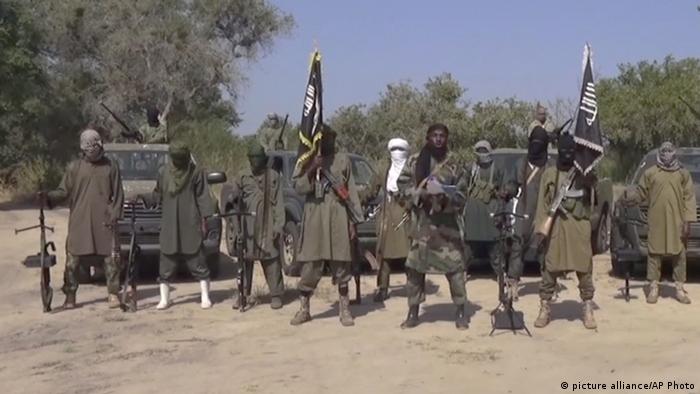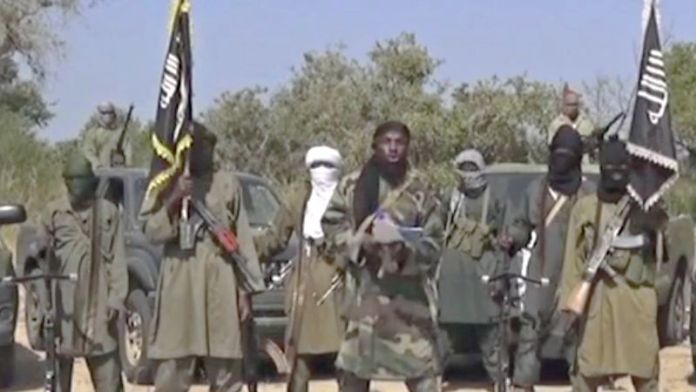Addressing the Boko Haram insurgency in northern Nigeria requires policymakers to look beyond Western security templates of Islamic terrorism to grasp the underlying causes of what is primarily a Nigerian conflict.

This policy brief examines the four explanatory factors behind the insurgency: economic marginalisation, governance failures, extremist operations and security failures. Economic causes are traced to poverty, unemployment and extreme inequality between northern and southern Nigeria, while governance failures relate to national religious polarisation, political brinksmanship among religious elite, and rampant corruption in the face of mass poverty.
The focus on extremist operations considers the shifting objectives and recruitment strategies of Boko Haram, which tend to confound clear policy analysis, while an assessment of security failures notes their role in driving rather than reining in radicalisation.
Recommendations for international policy interventions focus on four areas of constructive engagement. These include diplomatic pressure on the Nigerian government to demonstrate adequate political will to address the insurgency, supporting human rights training and providing appropriate equipment for the military, providing more socially differentiated support for the generation of dignified livelihoods appropriate to both the educated and uneducated unemployed, and more concerted support for the compensation of Boko Haram’s victims.
Since 2009 Nigeria has been in the grip of a violent Islamic insurgency by the extremist sect widely known as Boko Haram. More than 12,000 people have been killed in Boko Haram attacks across northern Nigeria and hundreds of thousands displaced. Military action and civil resistance have driven the group back into the three north eastern states of Borno, Yobe and Adamawa, where a state of emergency has been in force since November 2013.

However, Nigerian security forces have been unable to restore order, as evidenced by their failure to rescue over 200 schoolgirls kidnapped in April 2014, the ongoing capture and destruction of towns in Borno and Adamawa states, and continued bombings in recent months in major cities across Nigeria, including the capital, Abuja.
Ending this violent insurgency requires a clear-headed assessment of its causes and shifting character, unburdened by the discourses of the so-called war on terror or contending political agenda in the run-up to the 2015 Nigerian elections.
From an international policy perspective, constructive intervention in what remains a shadowy and rapidly changing situation requires an appreciation of Boko Haram as primarily a Nigerian problem rooted in poverty and poor governance rather than global Islamic terrorism.
Poverty levels in the noth east and north west are 40 per cent higher than those in the south west of the country, and unemployment is three times as high. Lack of education is part of the problem – barely one in five adults in the Muslim north are literate, compared to 80 per cent in southern Nigeria – but even educated northern youth struggle to find work in the collapsing northern economy.

Even in the informal economy there is growing competition over jobs. Unemployed graduates are beginning to crowd out the traditional occupants of informal activities. In the once-vibrant northern cities of Kano and Kaduna young men with post secondary qualifications can be found working as tailors, load carriers and hawkers, while the poor and uneducated struggle to find even lowly informal work.
This has unleashed significant resentment against the failure of Western education to deliver on the promise of dignified work as well as anger over the incursion of Western graduates into the little informal work available for the poor.
This dual frustration is reflected in the presence of both western educated actors in Boko Haram’s membership and those with no education. At the bottom of northern Nigerian society, poverty, unemployment, and rapid rural-urban migration are unravelling communal support mechanisms and eroding traditional Koranic education systems.
Membership of youth gangs has flourished, while millions of itinerant Koranic students are subjected to increasing deprivation and neglect, unleashing a growing problem of feral youth across northern Nigerian cities. Governance failures: The rise of Islamic terrorism is not simply a result of poverty and inequality, but of how these issues have been shaped by religious and political factors.

Other Muslim West African societies, such as those of Senegal and Niger, have higher levels of poverty and unemployment than Nigeria and a larger share of Muslims in their populations yet remain peaceful. More extreme inequality in Nigeria is part of the problem: while Senegal and Niger have an inequality profile similar to Eastern Europe, Nigeria’s approximates that of Latin America. Escalating inequality is accompanied by severe religious polarisation at the national level.
A fairly equal proportion of Muslims and Christians in Nigerian society has fostered a competitive political brinksmanship between Christian and Muslim elite in struggles over control of the country’s oil wealth, fostering rising Christian-Muslim violence since the 1980s.
Religious polarisation between Christians and Muslims has exacerbated an internal dynamic of religious fragmentation and radicalisation in northern Nigerian Islam, manifested in growing religious intolerance, extremist views and discourses of violence among radical Muslim preachers.
Poor governance and rampant corruption have pushed these social and religious tensions to the breaking point. Resource-curse politics and the opulent behaviour of northern elite amid mass poverty have fostered a deep sense of popular grievance.

Boko Haram initially emerged as a protest against the poor governance and corruption of northern leaders, which the movement sought to remedy through demands for an Islamic state and strict adherence to sharia law. The charismatic founder of the movement, Mohammed Yusuf, was openly critical of northern leaders, but Boko Haram’s move to terrorism only started after his death in police custody in 2009.
Despite some sympathy among northern Nigerian Muslims with its critique of political misrule, there is little support for Boko Haram’s violent tactics. A 2014 survey by the Pew Foundation showed that 80% of Nigerian Muslims have an unfavourable view of the movement. Extremist operations: While poverty and corruption have created a fertile recruiting ground for Boko Haram, the constant mutation and evolution of the sect has frustrated any clear assessment of its objectives and membership.
The shift to violent extremism since 2010 has been accompanied by changes in both its objectives and recruitment tactics, as well as by a fragmentation of the group itself. Initially, Yusuf attracted followers through his fiery rejection of the corrupt secular state while building a community based on sharia principles and the provision of basic needs.
Boko Haram offered one meal a day, arranged low-cost marriages, and provided loans for petty commercial activities, thus offering basic social dignity to the poor and unemployed. Following alleged links with Borno State politicians in the run-up to the 2003 elections, relations turned sour when the elected governor failed to follow up on promises to implement full sharia law, leading to increasingly vitriolic and bloody clashes with the state.
The shift to terrorism followed the killing of Yusuf in police custody and the deaths of 700 of his followers in 2009 in a clash with police. Boko Haram returned as a more aggressively terrorist organisation in 2010 under the leadership of Abubakar Shekau. More violent attacks on churches, drinking places, Muslim critics, and schools were accompanied by new tactics such as suicide bombing and kidnapping, suggesting imitation of and limited contact with global Islamic terrorists, but not necessarily incorporation into global terrorist networks.
The Boko Haram splinter group Ansaru rejected terror tactics against fellow Muslims and places of worship, targeting its attacks on security services and Western interests. Shifting recruitment tactics have also changed the composition of Boko Haram’s membership. Under Shekau’s leadership initial motives of religious radicalism have been diluted by an increasing use of monetary inducements, family pressures (especially for wives of members), fear of reprisals, conscription and kidnapping.
The failure to rein in Boko Haram’s activities in the three northeastern states and the increasing devastation of the wider northern Nigerian economy are facilitating an entrenchment of the group in an environment of grievance, poverty, insecurity and desperation.
The “bad neighbourhood” effect of Boko Haram’s sphere of operations, which borders areas containing marauding militias in Chad and the Central African Republic, exacerbates the risks of the group’s entrenchment and mutation into a violent regional militia.
Source: Vanguard
Post Disclaimer
The opinions, beliefs and viewpoints expressed by the author and forum participants on this website do not necessarily reflect the opinions, beliefs and viewpoints of Anaedo Online or official policies of the Anaedo Online.

